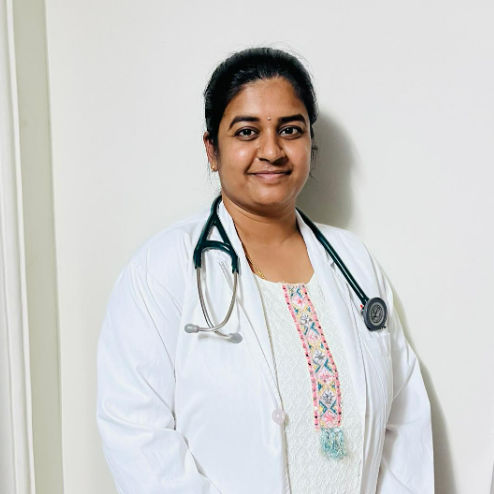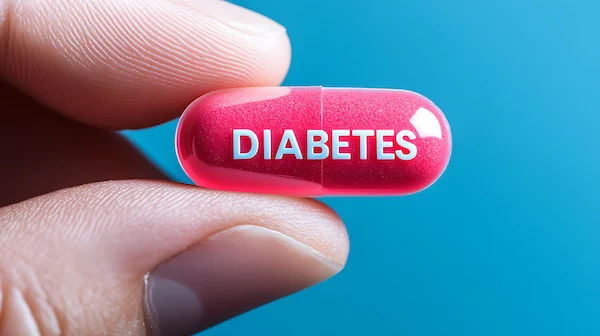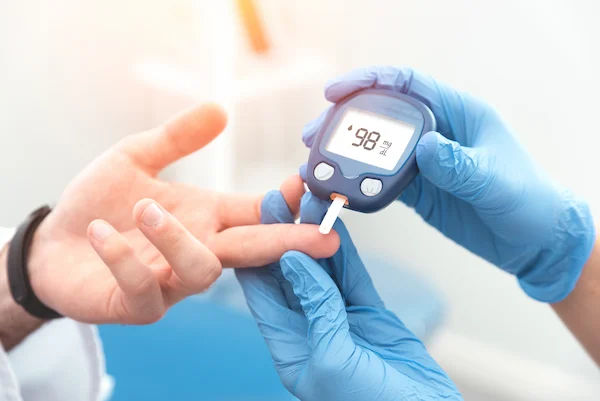Reversing Type 2 Diabetes: Is It Possible?
Discover how Type 2 diabetes remission is possible with weight loss, healthy eating, exercise, and lifestyle changes. Learn steps to take control of your blood sugar today.

Written by Dr. Siri Nallapu
Reviewed by Dr. Rohinipriyanka Pondugula MBBS
Last updated on 22nd Jul, 2025

Introduction
Living with Type 2 diabetes can feel overwhelming, but there’s hope! Many people wonder if it’s possible to reverse this condition. The good news is that with the right approach, Type 2 diabetes can be put into remission, meaning blood sugar levels return to normal without medication.
This article will explain what diabetes remission means, how it can be achieved, and practical steps you can take to improve your health.
Understanding Type 2 Diabetes
Type 2 diabetes occurs when your body either doesn’t produce enough insulin or becomes resistant to insulin, leading to high blood sugar levels. Over time, uncontrolled diabetes can damage your heart, kidneys, nerves, and eyes.
Common Symptoms of Type 2 Diabetes
Frequent urination
Increased thirst and hunger
Fatigue
Blurred vision
Slow-healing wounds
Tingling or numbness in hands/feet
If you experience these symptoms, consult a doctor for a proper diagnosis.
Can Type 2 Diabetes Be Reversed?
While Type 2 diabetes cannot be completely cured, it can go into remission. This means blood sugar levels stay within a healthy range without diabetes medication.
What Is Diabetes Remission?
Partial Remission: Blood sugar levels are lower than the diabetic range for at least a year without medication.
Complete Remission: Blood sugar levels remain normal for at least a year without medication.
Prolonged Remission: Blood sugar stays normal for five years or more.
Remission is more likely if diabetes is caught early and managed aggressively through lifestyle changes.
How to Achieve Diabetes Remission
1. Weight Loss (If Overweight)
Losing 5-10% of body weight can significantly improve insulin sensitivity. Studies show that losing 15 kg (33 lbs) or more can lead to remission in many cases.
How to lose weight safely:
Follow a balanced, low-calorie diet.
Avoid sugary drinks and processed foods.
Engage in regular exercise (walking, swimming, cycling).
2. Adopt a Diabetes-Friendly Diet
Foods to include:
Non-starchy vegetables (spinach, broccoli, cauliflower)
Lean proteins (chicken, fish, tofu)
Healthy fats (avocados, nuts, olive oil)
Whole grains (quinoa, brown rice, oats)
Foods to limit:
Sugary snacks and drinks
Refined carbs (white bread, pasta, pastries)
Fried and processed foods
3. Exercise Regularly
Physical activity helps lower blood sugar and improve insulin sensitivity. Aim for:
150 minutes of moderate exercise per week (e.g., brisk walking).
Strength training twice a week to build muscle.
4. Monitor Blood Sugar Levels
Regular checks help track progress and prevent complications. Use a glucometer or continuous glucose monitor (CGM) if recommended.
Get Your Symptoms Checked By An Endocrinologist
5. Manage Stress and Sleep Well
Stress raises blood sugar: practice yoga, meditation, or deep breathing.
Poor sleep affects insulin resistance: aim for 7-9 hours per night.
Medical Approaches to Support Remission
Here are the medical approaches to support remission:
1. Bariatric Surgery (For Some Cases)
For people with severe obesity, weight-loss surgery can lead to rapid diabetes remission by improving metabolism.
2. Medications (If Needed)
Some medications (like metformin) help control blood sugar while you work on lifestyle changes.
Always consult your doctor before making changes to medication.
Can Everyone Reverse Type 2 Diabetes?
While many people can achieve remission, success depends on:
How long you’ve had diabetes (early intervention works best).
Your commitment to lifestyle changes.
Genetic factors (some people may need ongoing management).
Even if full remission isn’t possible, better blood sugar control reduces complications.
Take the First Step Toward Better Health
If you have Type 2 diabetes or prediabetes, small changes today can lead to big improvements tomorrow.
Need Help?
Consult a diabetes specialist for personalized advice.
Book a diabetes screening test to check your blood sugar levels.
Apollo 24|7 makes it easy! You can schedule a consultation or lab test from home.
Conclusion
Reversing Type 2 diabetes is possible with dedication to a healthier lifestyle. Weight loss, a balanced diet, exercise, and stress management play key roles.
Would you like to speak with a diabetes expert? Book a consultation now and take the first step toward remission.
Get Your Symptoms Checked By An Endocrinologist
Get Your Symptoms Checked By An Endocrinologist

Dr. Nithin Reddy Modhugu
Endocrinologist
6 Years • MBBS, MD (General Medicine), DNB (Endocrinology)
Hyderabad
Dr. Nithin's Endocrine Clinic, Hyderabad
(100+ Patients)

Dr. Gayatri S
Endocrinologist
4 Years • Suggested Qualifictaion- MBBS, MD (Internal Medicine), DM (ENDOCRINOLOGY)
Nellore
Narayana hospital, Nellore

Dr. Venkata Rakesh Chintala
Endocrinologist
8 Years • MBBS,MD( GEN MEDICINE), DM ( ENDOCRINOLOGY)
Krishna district
Sanjeevani Hospital, Krishna district

Dr. Shiva Madan
Endocrinologist
10 Years • MBBS , MD (General medicine) , DM (Endocrinology)
Bikaner
Sushma diabetes and Endocrine center, Bikaner

Dr. Arunava Ghosh
General Physician/ Internal Medicine Specialist
9 Years • MBBS,MD(GENL.MED.),DM(ENDOCRINOLOGY)
Kolkata
VDC Clinic, Kolkata

